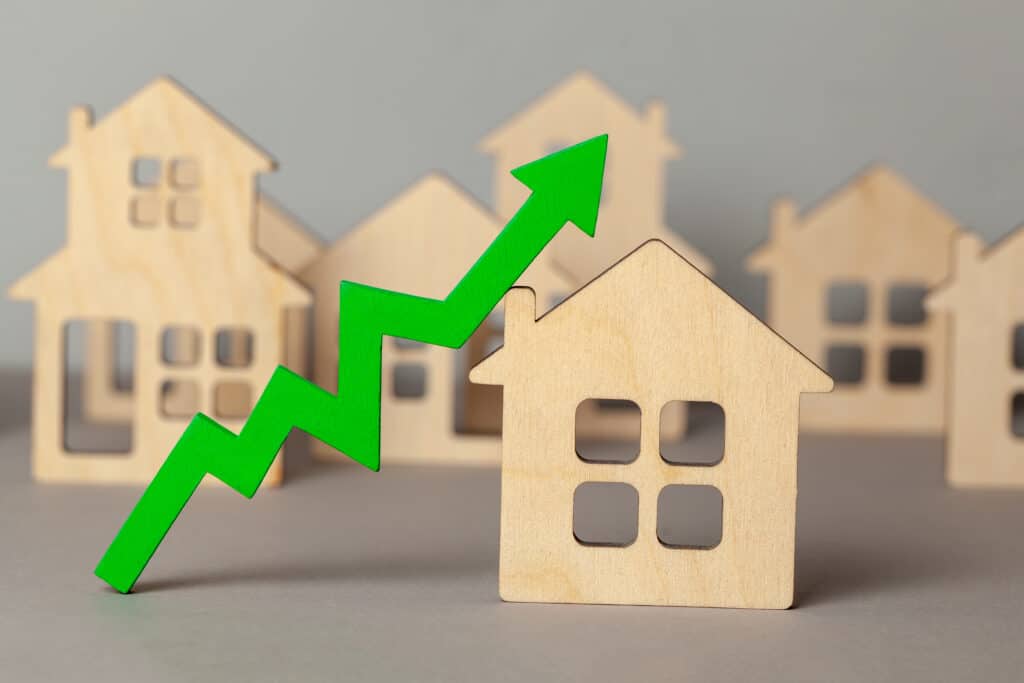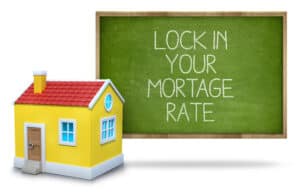Is the Housing Market In a Correction?

According to analysts, the housing market shows signs that it might be in a correction, so what does this mean for prices? How will it affect both buyers and sellers?
 Mortgage rate demand has been spiraling, and at the same time, home prices are still rising. These two converging factors are partially why experts are predicting the real estate market is either on the cusp of a correction or already in one.
Mortgage rate demand has been spiraling, and at the same time, home prices are still rising. These two converging factors are partially why experts are predicting the real estate market is either on the cusp of a correction or already in one.
Home sales are declining, and fewer buyers seek mortgages because they can’t afford interest rates, home prices, and inflation. Real estate agents are already reporting smaller bidding wars, and sellers are cutting prices.
Prices have started falling in some parts of the country.
Mark Zandi, who serves as chief economist at Moody’s Analytics, believes a correction has already begun. Zandi says there are cracks showing in the housing market, which will grow in the coming months.
In April, median home list prices throughout the U.S. hit a new record high of $425,000. That was more than 14% higher in just a year. Average mortgage interest rates were up to 5.25% in the week that ended May 19, a 75% increase in a year.
That means a new buyer, as a result, would be paying around 50% more for the same property compared to a year ago in their monthly mortgage payment. That’s diminishing Americans’ buying power, as is the inflation impacting everything from groceries to gas.
The majority of experts don’t think the housing market is in a bubble, however. Nor do most think there’s a crash coming, as we saw with the Great Recession.
There’s still a housing shortage in the nation, and it’s at a crisis point.  Many millennials are just now reaching a point where they’re considering homeownership, so prices will probably stay high.
Many millennials are just now reaching a point where they’re considering homeownership, so prices will probably stay high.
Plus, lenders are extending financing only to the most qualified buyers who are the least likely to end up in foreclosure.
Prices won’t drop drastically unless there’s another short sale and foreclosure wave.
Housing tends to go in cycles, with booms and busts. We’re in a boom currently, but there will also inevitably be a bust.
In the past two years, home prices have gone up 32.4%. Higher prices mean higher down payments, and with everything costing more, it’s harder to save for down payments.
For the week ending May 13, mortgage applications from buyers drop 15.2%, according to the most current data from the Mortgage Bankers Association.
In April, sales of existing homes were down 2.4%, and nearly 13% for newly built homes in March. This is from data compiled by the National Association of Realtors, the U.S. Census Bureau, and the U.S. Department of Housing and Urban Development.
The Chief Economist for Realtor.com says that we’re likely to see home sales slow further as the year goes on. Buyers will be more thoughtful when they’re buying a home, and they’re going to be less likely to stretch their budgets.
Even so, median list prices haven’t caught up with the reality of the market just yet. Median list prices were nearly 16%higher year-over-year in the week that ended May 14.
This disconnect is probably because there were a number of buyers who locked in mortgage rates before they went up so much.
is probably because there were a number of buyers who locked in mortgage rates before they went up so much.
Buyers may not realize they’re not going to qualify for as much as they did when rates were lower, or they may not yet understand how much their monthly payments will go up.
There will be an adjustment curve in the housing market, but at the same time, price cuts on listed homes were up 12%, according to Realtor.com.
Most experts think the prices are set to flatten instead of dropping nationally because there are still more buyers than homes for sale.
The fundamentals seem to be consistent, and the demand should continue exceeding the supply of homes.
It could be that investors throw a wild card into the mix because they have the cash-on-hand, and could potentially keep fueling a strong market.
WRITTEN BY ASHLEY SUTPHIN
